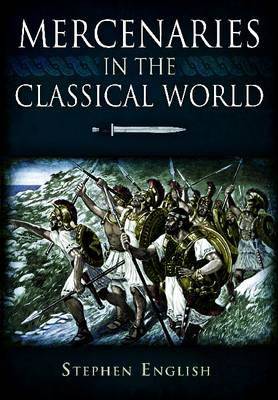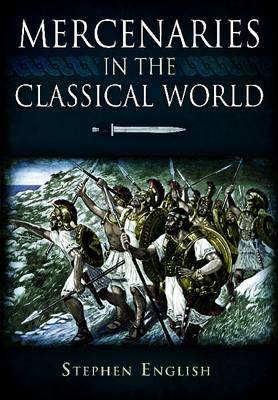
- Afhalen na 1 uur in een winkel met voorraad
- Gratis thuislevering in België vanaf € 30
- Ruim aanbod met 7 miljoen producten
- Afhalen na 1 uur in een winkel met voorraad
- Gratis thuislevering in België vanaf € 30
- Ruim aanbod met 7 miljoen producten
Zoeken
€ 27,95
+ 55 punten
Omschrijving
Mercenaries were a significant factor in many of the wars of the Classical world, being employed in large numbers by many states. By far the most famous were Xenophon's 'Ten Thousand', who had to cut their way out of the Persian Empire after the death of their employer and such Greek infantry were for long the most dominant type (even a Spartan king hiring himself out in one case), but there was a wide variety of mercenaries available. Some, such as Celts and Thracians were hired largely for their love of fighting, while others were valued for their specialist skills, such as Cretan archers or slingers from Rhodes or the Balearic Islands. This will be the first full-length book on the subject since 1997. It will examine the role of the mercenaries and their influence on the wars of the period down to the death of Alexander the Great, who employed them and why, and will also look at the social and economic pressures that drove tens of thousands to make a living of fighting for the highest bidder, despite the intense dangers of the ancient battlefield.
Specificaties
Betrokkenen
- Auteur(s):
- Uitgeverij:
Inhoud
- Aantal bladzijden:
- 192
- Taal:
- Engels
Eigenschappen
- Productcode (EAN):
- 9781848843301
- Verschijningsdatum:
- 15/01/2013
- Uitvoering:
- Hardcover
- Formaat:
- Genaaid
- Afmetingen:
- 160 mm x 234 mm
- Gewicht:
- 453 g

Alleen bij Standaard Boekhandel
+ 55 punten op je klantenkaart van Standaard Boekhandel
Beoordelingen
We publiceren alleen reviews die voldoen aan de voorwaarden voor reviews. Bekijk onze voorwaarden voor reviews.











